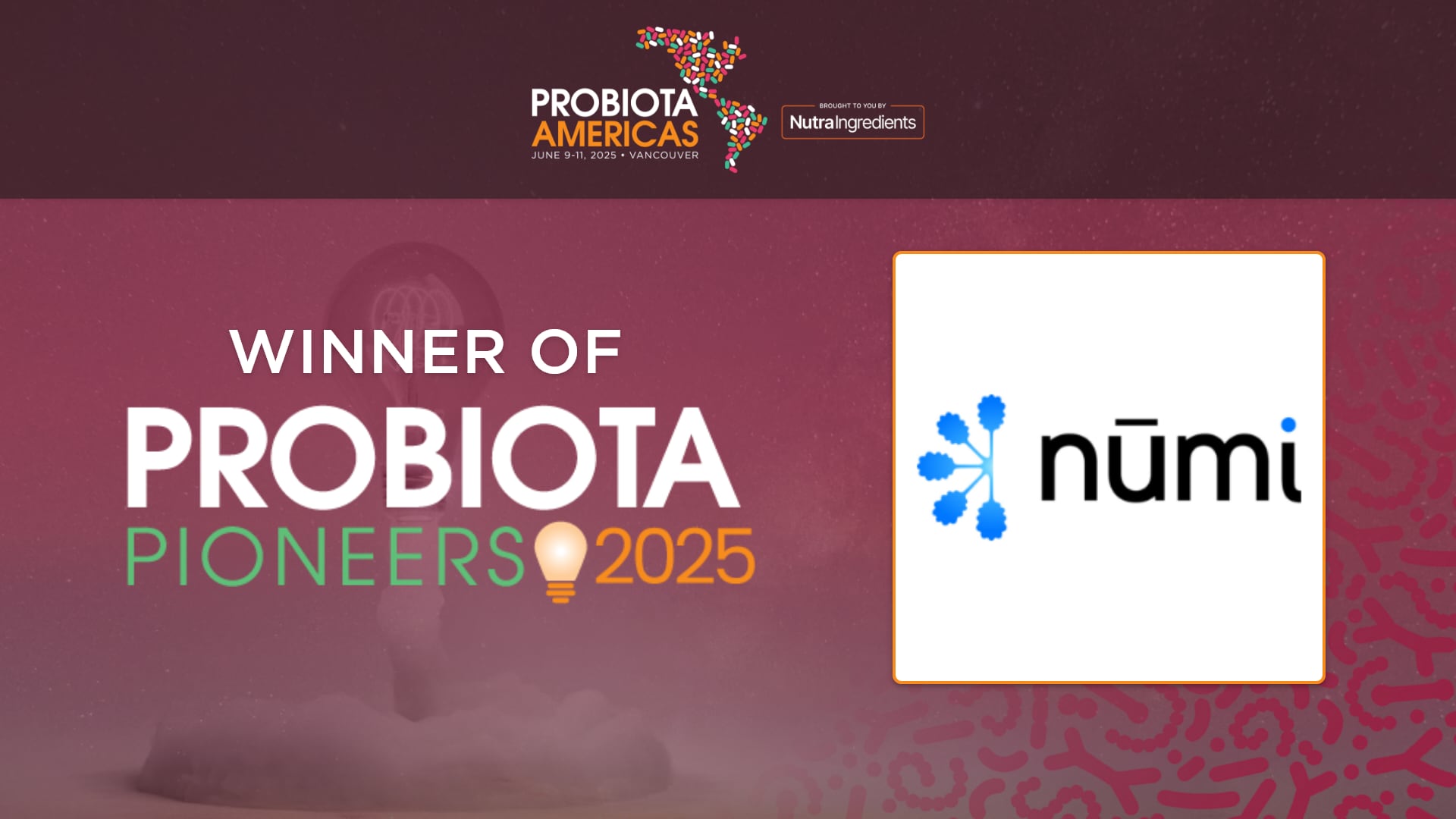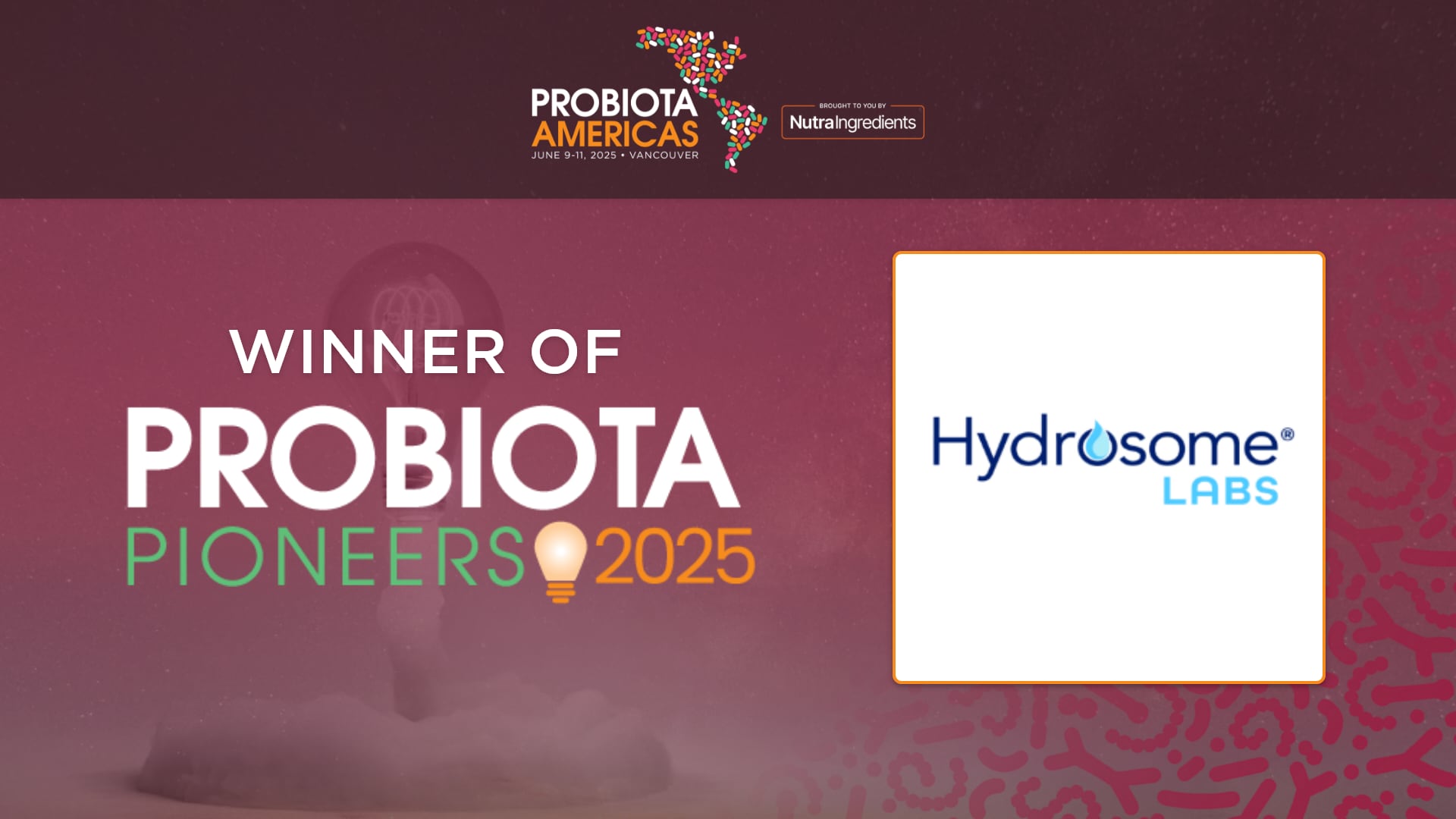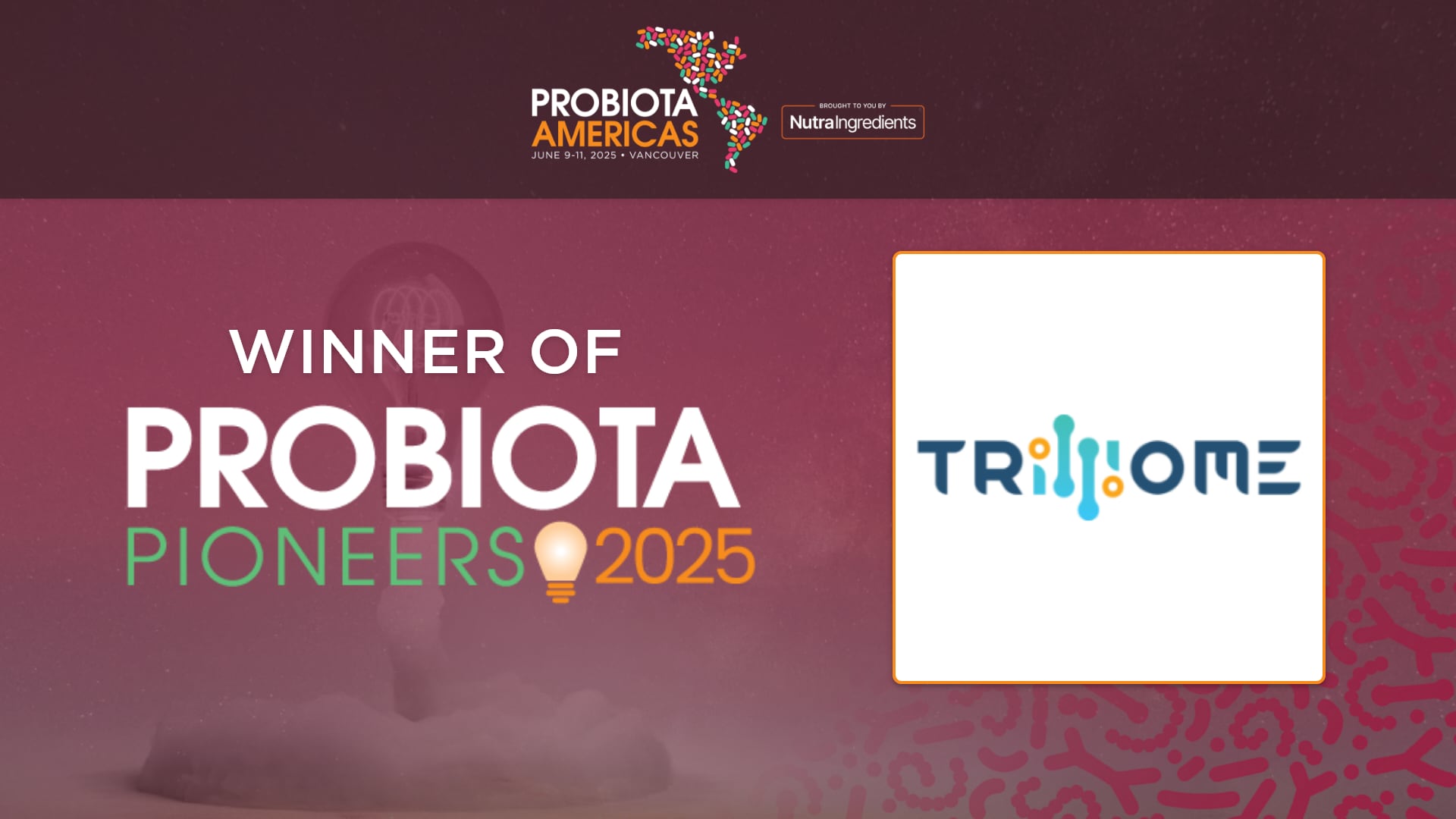The company was founded in 2023 by Eden Banon, who brings a venture capital background advising deep tech start-ups, and Eugénie Pezé-Heidsieck, who holds a PhD in cellular and molecular biology.
As two women in their thirties, they say they were drawn to the topics of breastfeeding and infant nutrition and driven by a shared belief that some of the world’s most pressing challenges can be solved at the intersection of deep science and entrepreneurship. Today, they lead a team of around 15 scientists, all working towards the same goal: making the unparalleled benefits of breast milk accessible to all.
Ahead of her presentation at the upcoming Probiota Americas in Vancouver as one of this year’s Probiota Pioneers, Banon discusses the path to producing human milk constituents through cell culture at scale, moving beyond single molecule approaches and learning that bold ambition is not a risk.
NutraIngredients: What was the driving force behind the founding of Nūmi?
Eden Banon: Nūmi was founded to address a critical gap in infant nutrition, the need for an alternative that comes closer to the gold standard for infants: human breast milk.
While the World Health Organization recommends exclusive breastfeeding for at least the first six months of life, the reality is that over 70% of mothers face challenges with breastfeeding.
The only alternative today is infant formula, which relies on cow’s milk in 90% of cases. This comes with inherent limitations due to the difference in species and leads to allergies and intolerances for around 15% of cases. The need for a better alternative is even more urgent when looking at the most vulnerable population: preterm infants, who accounts for 10% of births in the United States. Nūmi was created to make the high value constituents of human breast milk accessible to all through cell culture.
NI: What has gone into scaling the business to create real innovation?
EB: For our R&D at Nūmi, we first demonstrated the technical feasibility of producing human milk constituents through cell culture at lab scale. Our scientific work confirmed the validity of our approach, enabled the secretion of key constituents and led to the filing of our first patent. Since then, we’ve successfully reproduced key human milk constituents, assembled a team of 15 scientists and engineers from world-class institutions and secured over €3M in funding.
NI: Where are you now in your evolution/development, and what is next for Nūmi? What is your go-to-market strategy?
EB: At Nūmi, we have established our in-house lab space in Paris, successfully reproduced several key constituents of human breast milk and built strong collaborations with leading academic experts and hospitals. These milestones have validated the scientific foundation of our work and paved the way for the next phase of development.
Nūmi is now entering a stage of our R&D where we need to move through an initial scale-up phase of our technology, allowing us to transition from lab-scale to larger volumes.
Our go-to-market strategy is centered around B2B commercialization. By focusing on what we do best, our unique and proprietary technology, we can accelerate product development while minimizing the capital expenditures associated with direct distribution and marketing.
Additionally, leveraging the distribution networks, expertise and brand recognition of established industry leaders enables a faster and more efficient path to market. In addition to the infant formula sector, we are keen to bring the extraordinary benefits of human milk constituents to other specialized nutrition markets such as sport nutrition and elderly nutrition.
NI: In layperson’s terms, could you explain how you culture maternal milk? How do you stimulate lactation in mammary cells?
EB: Our innovative approach is based on cultivating human mammary cells under optimal conditions to ensure the secretion of essential breast milk constituents. Our technology involves growing cells under controlled conditions, outside their natural environment. Once isolated, these cells proliferate and secrete essential human milk constituents, which then undergoes a purification process to ensure quality and safety.
Our processes go beyond what is currently possible with other methods like precision fermentation, which is limited to producing one constituent at a time. Nūmi’s method leverages the full biological machinery of mammary cells, allowing us to produce a much wider range of key components found in human milk.
NI: What are some of the challenges you’ve encountered in the first years of the business?
EB: Building Nūmi meant tackling multiple complex challenges at once: setting up a lab from the ground up, attracting top-tier scientific talent and securing substantial funding to develop our technology.
We overcame these hurdles by surrounding ourselves with the right people: scientific experts, experienced advisors and strong investors. Today, our efforts are focused on key technical milestones, as well as developing our IP portfolio and our regulatory roadmap to market.
NI: As one of our pioneers, could you outline your approach or ethos in treading a path or direction that no other firm has gone before? How do you weigh up the risks and benefits here?
EB: At Nūmi, we decided to change the paradigm, if human milk is best, let’s replicate its unique components in vitro. We’re leveraging cutting-edge science to build a new standard in infant nutrition—one that focuses on health benefits, empowers parents with choice and brings sustainable solutions to the industry.
We’re driven by impact, powered by science. That means tackling the hardest scientific challenges head on to create meaningful, long-term change. We are here to change the status quo, supporting a new era of parenthood rooted in equity for babies and their families.
One learning from our journey so far is that bold ambition is not a risk—it’s a strength, it attracts the right people, partners and investors who share your values and help unlock the full potential of your company.
NI: In the probiotic, prebiotic and microbiome space, what would you say is the next research area that the industry needs to keep its eye on?
One major research priority in the microbiome space, especially within infant nutrition, will be translating scientific insights into scalable, multi-component solutions. Human milk is the gold standard for shaping the infant microbiome, but its complexity (over 1,500 constituents) has never been fully replicated. While we now understand the individual benefits of HMOs, lactoferrin and other bioactives, the challenge lies in reproducing their combined effects at scale, with consistency, safety and cost-efficiency.
The industry will move beyond single molecule approaches to embrace complex formulations that better mirror the complexity of human breast milk. This will require not only scientific breakthroughs but also robust industrial processes and regulatory frameworks.
To overcome these challenges, we should focus on building robust scientific, regulatory and industrial pathways. Collaborations between academia, industry and regulatory bodies will be critical in accelerating the transition from research to real-world applications.
NI: Finally, what is the significance for Nūmi of being named one of our 2025 Probiota Pioneers, and how do you think it helps your profile in such an innovative, ever-changing industry?
EB: Being named a 2025 Probiota Pioneer is a significant milestone for Nūmi. This recognition places us among the most innovative start-ups in the microbiome field, highlighting our commitment to advancing infant nutrition through cutting-edge science. It provides us with an international platform to showcase our work to industry leaders, researchers and potential partners, facilitating valuable connections and collaborations. In an ever-evolving industry, such acknowledgment not only validates our approach but also enhances our visibility, helping us to attract further support and drive our mission forward.
Probiota Americas 2025
Registration is open for Probiota Americas 2025, which will take place June 9-11 at The Westing Bayshore Vancouver.
The three-day event will host sessions, discussions and roundtables on a wide range of topics including microbiome ecology and colonization, maternal and infant health, advances in genetic engineering and gene editing, identification and enumeration, personalized approaches to microbiome modulation, the state of the market, the evolving regulatory landscape in North America and what’s next in the biotics space.
Speakers include microbiome and industry experts affiliated with UC San Diego, Vidya, Joint Genome Institute, Morinaga, Synbiotic Health, Human Milk Institute, Novonesis, Kaneka Probiotics, Zbiotics, Université de Sherbrooke, Eurofins, Anabio Technologies, IFF Health Sciences, NPCS International, U.S. Pharmacopeia, Amin Wasserman Gurnani, Rothschild & Co., Lumina Intelligence, Genbiome, International Probiotics Association and WeCare-Probiotics.
To learn more and register for the event, visit the Probiota Americas site or download the advance program.



